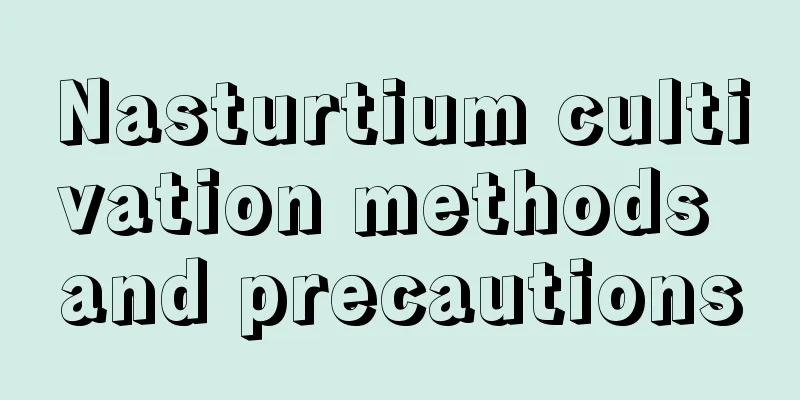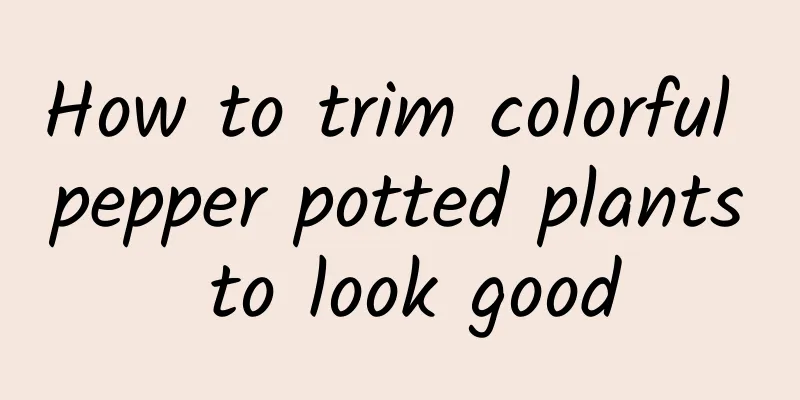Nasturtium cultivation methods and precautions

How to grow nasturtiumPot soilThe best soil for growing nasturtium is sandy loam rich in organic matter with a pH of 5-6. Generally, fertilizer is applied every 3-4 weeks during the growing season. After each fertilization, the soil should be loosened in time to improve aeration and facilitate root development. Water and fertilizer managementWatering: Nasturtium likes moisture and is afraid of waterlogging. The soil moisture should be maintained at about 50%. During the growth period, watering should be done with small amounts of water frequently. In spring and autumn, water once every 2-3 days, and in summer, water every day. Spray water on the leaves in the evening to maintain a high humidity. Fertilization: During the growth process, 20% decomposed bean cake water is generally applied once a month; Stop applying nitrogen fertilizer during the flowering period and apply 0.5% superphosphate or decomposed chicken and duck manure water once every half a month; After the flowers fade, apply 30% decomposed bean cake water as top dressing to replenish the nutrients consumed by flowering. Stop fertilizing during hot summer weather. Apply compound winter fertilizer again in late autumn to enhance the plant's resistance to cold. illuminationNasturtium likes sunlight and should be placed in a sunny place in spring and autumn. It needs appropriate shade in summer and the room temperature should be kept at around 15℃ in winter. With sufficient sunlight, it can continue to grow and develop. Reproduction methodNasturtium can self-pollinate, and the seeds can be used for sowing and propagation. Nasturtium can also be propagated by cuttings, which can be done in spring and autumn. Precautions for family cultivation of nasturtiumCommon diseases and pests of nasturtiumCommon diseases of nasturtium: mosaic disease, ring spot disease Common pests of nasturtium: leaf miners, red spiders Nasturtium can be used as a spiceNasturtium is a non-toxic ornamental flower with a fragrant bloom. Young shoots, flower buds and fresh seeds can be used as spices, but the taste is strong and spicy. |
<<: What are the varieties of bamboo palm
>>: Cultivation methods and precautions of gladiolus
Recommend
Does Forsythia prefer shade or sun?
Does Forsythia prefer shade or sun? Forsythia is ...
How to water the pitcher plant
How to water the pitcher plant Nepenthes cage wit...
Can I plant a plum tree in front of my door?
Can I plant a plum tree in front of my door? Plum...
Broccoli Planting Technology and Management
Broccoli , as a vegetable that can be grown in al...
How to grow blue snow flower
Cultivation method of blue snow flower 1. Soil co...
How to care for hibiscus in four seasons
Spring Care of Hibiscus Spring is the time when a...
Differences between Foxglove and Lupine
1. Different leaves Foxglove has simple leaves, e...
When is the best time to plant carrots in the south?
Carrot planting time in the south The most suitab...
How to propagate Dendrobium
Mode of reproduction For ordinary family cultivat...
How to store leeks to keep them fresh? How to store leeks for a long time?
1. Keep fresh in the refrigerator You can put the...
How to water the fiddle-leaf fig
Determine the amount of watering according to the...
How to prune four-season plum
1. Pruning method Pruning is an important step fo...
What to do if the leaves of the yellow cicada turn yellow
The reason why the leaves of the yellow lily turn...
Is it better to grow pennywort in water or soil?
1. Advantages and disadvantages of soil cultivati...
How often should I water jasmine?
How often should I water jasmine? Spring is the g...









